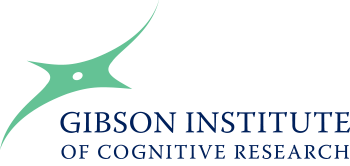Our Research on Brain Training for Older Adults with Age-Related Cognitive Decline
James, R., Moore, A.L., Carpenter, D., Miller, T., & Ledbetter, C. (2019). Feasibility of a Functional Medicine Approach to Slowing Clinical Cognitive Decline in Patients Over Age 55: A Multiple Case Study Report. OBM Integrative and Complementary Medicine, 4(3). doi: 10.21926/obm.icm.1903054
This study examined a multifaceted anti-neuroinflammatory intervention that included physical exercise, mental exercise, grain-free/sugar-free diet, anti-inflammatory nutritional supplements, sleep optimization, and stress management within the context of a functional medicine practice for five patients with varying levels of cognitive impairment. In a prospective chart review, we examined impact measures including assessment of (1) cognitive skills, (2) brain connectivity, and (3) daily functioning. Three of the five patients were no longer classified as cognitively impaired, while a fourth patient improved from moderately-to-severely impaired to mildly impaired. Patients reported improved memory, mental clarity, and outlook on life. fMRI analyses revealed changes in brain connectivity and efficiency. The current study provides preliminary support for and feasibility of the use of a multi-component approach to slowing cognitive decline. View PDF Link to article
Moore, A.L., Carpenter, D.M., Miller, T.M., & Ledbetter, C., (2019). ThinkRx Cognitive Training for Adults over Age 50: Clinician-Caregiver Partners in Delivery as Effective as Clinician-Only Delivery. Psychology and Neuroscience, 12(2), 291-306. doi: 10.1037/pne0000162
The aim of the study was to evaluate differences in cognitive outcomes and self-reported real-life improvements between two methods of delivering the ThinkRx cognitive training intervention: professional delivery solely by a clinician versus a partnership model where a caregiver or spouse delivers half of the intervention at home. The sample included 292 participants ranging in age from 51 to 95 with subjective memory or attention complaints. Participants completed an average of 79 training hours. The results showed no significant differences between delivery methods on any of the cognitive skills measured, and few remarkable differences in self-reported real-life improvements. Both delivery methods resulted in significant pretest to post-test gains across all six cognitive skills measured including working memory, long-term memory, processing speed, visual processing, auditory processing, and fluid reasoning, as well as self-reported improvements in five key areas: mood, memory, cognitive efficiency, life application skills, and focus/attention. Caveats include the need for caregivers to be motivated enough and cognitively sharp enough themselves to help deliver the program. (Link to author’s copy of the article)
Ledbetter, C., & Moore, A. (2018). Neuroimaging outcomes of a cognitive rehabilitation training program. Journal of Neuroimaging, 28(2), 225-233. doi: 10.1111/jon.12507
To investigate if aberrant brain connectivity and changes in brain connectivity (a neuroimaging marker of neuroplasticity), were evident prior to and after completion of a robust cognitive training program, a series of case studies were carried out in subjects with varying degrees of traumatic brain injuries (n = 5) and cognitive impairment (n = 5). MR exams were acquired on all subjects prior to and upon completion of the ThinkRx cognitive training program. In addition to MR exams, all subjects completed pre-post neuropsychological testing (WJ-IV) and condition-specific rating scales. For all cases, neuropsychological testing and qualitative outcomes measures increased, supporting that the robustness of the training program held for each imaged case study. Normalization of DMN connectivity, including decreased hyperconnectivity and reoccurrence of anticorrelated activity, was evident in the most severe TBI case. At the group level, significant training-induced changes in neural connectivity were identified. Read the article. Or read the abstract on pages 230-231: Neuroimaging Outcomes for TBI and MCI_J of Neuroimaging
Moore, A.L., James, R., Carpenter, D., Miller, T., & Ledbetter, C. (2018). MRI and Neuropsychological Outcomes following a Functional Medicine Intervention with Cognitive Training in Mild Cognitive Impairment (MCI): A Multiple Case Study. Presentation at American Psychological Association Annual Convention, August 2018, San Francisco, CA.
Using a multiple case study design, we examined neural connectivity with fMRI, executive function, memory, attention, reasoning, everyday functioning, and overall IQ score for 5 clients with varying levels of Mild Cognitive Impairment (MCI) before the intervention, after 12 weeks on functional medicine (FM) protocols (grain-free/sugar-free diet, nutritional supplements, aerobic activity, optimized sleep & stress reduction) without cognitive training, and again following the addition and completion of 72 hours of cognitive training. In all five cases, improvement in both cognitive and life skills was achieved with a functional medicine protocol that included cognitive training. Normalization of the Default Mode Network (DMN) was evident along with the appearance of anti-correlations and decreased hyperconnectivity. A multidisciplinary approach to slowing or reversing cognitive decline appears to be promising. Link to presentation
Highland, S. A. (2019). Examining the self-efficacy perceptions of adults who completed a ThinkRx one-on-one brain training program. Doctoral dissertation. Retrieved from ProQuest Dissertations and Theses. UMI No. 2312810475.
The purpose of this qualitative study was to examine the perceptions of adults who completed a LearningRx ThinkRx program. Three forms of data were collected: artifact data, participant interviews, and member checking interviews. Using a thematic data analysis, five themes found in this study were self-awareness, problem solving, emotional control, achievement, and leadership. There was direct support for the research question from the themes of self-awareness, problem solving, and emotional control. Read the dissertation.
Completed Trials:
Multidisciplinary Approach to Treating Mild Cognitive Impairment (ClinicalTrials.gov NCT# 02943187)

